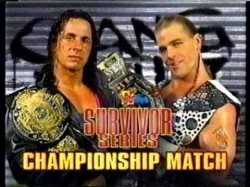[4 / 2 / 1]
Quoted By: >>14928735
The 1995 Quebec referendum was a tense moment in Canadian history, the second time the province asked voters if they wanted Quebec to become a sovereign nation. Here's a breakdown:
The Question:
The referendum, held on October 30, 1995, asked voters: "Do you agree that Quebec should become sovereign after having made a formal offer to Canada for a new economic and political partnership within the scope of the bill respecting the future of Quebec and of the agreement signed on June 12, 1995?"
The Outcome:
Voter turnout was incredibly high, at 93.52% - the highest in Canadian history [The Canadian Encyclopedia].
The "No" side won by a razor-thin margin: 50.58% to 49.42%.
The result was much closer than the 1980 referendum, where "No" won by a larger margin.
The Divisions:
The vote largely split along linguistic lines. French speakers mostly voted "Yes," while English speakers and allophones (those with neither English nor French as a first language) overwhelmingly voted "No."
There were also regional variations, with stronger support for sovereignty in rural areas.
The Aftermath:
The close result led to controversy over ballot counting and voter eligibility.
Premier Jacques Parizeau, a sovereigntist, resigned after the vote.
The debate over Quebec's place in Canada continued.
This referendum remains a significant event in Canadian history, highlighting the ongoing discussion about national identity and Quebec's desire for autonomy.
The Question:
The referendum, held on October 30, 1995, asked voters: "Do you agree that Quebec should become sovereign after having made a formal offer to Canada for a new economic and political partnership within the scope of the bill respecting the future of Quebec and of the agreement signed on June 12, 1995?"
The Outcome:
Voter turnout was incredibly high, at 93.52% - the highest in Canadian history [The Canadian Encyclopedia].
The "No" side won by a razor-thin margin: 50.58% to 49.42%.
The result was much closer than the 1980 referendum, where "No" won by a larger margin.
The Divisions:
The vote largely split along linguistic lines. French speakers mostly voted "Yes," while English speakers and allophones (those with neither English nor French as a first language) overwhelmingly voted "No."
There were also regional variations, with stronger support for sovereignty in rural areas.
The Aftermath:
The close result led to controversy over ballot counting and voter eligibility.
Premier Jacques Parizeau, a sovereigntist, resigned after the vote.
The debate over Quebec's place in Canada continued.
This referendum remains a significant event in Canadian history, highlighting the ongoing discussion about national identity and Quebec's desire for autonomy.

